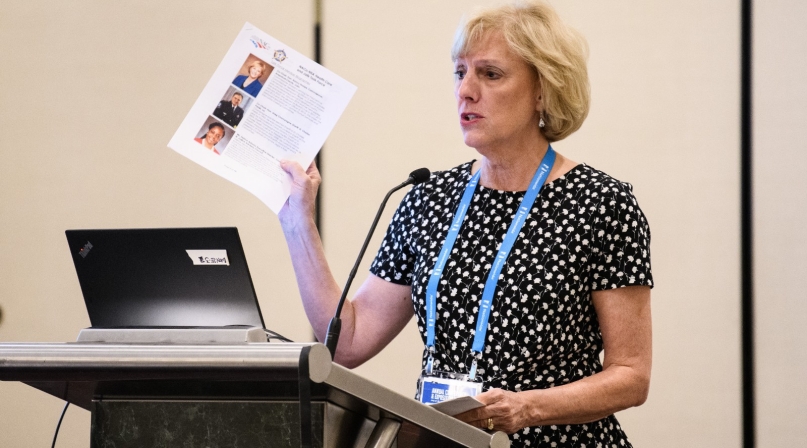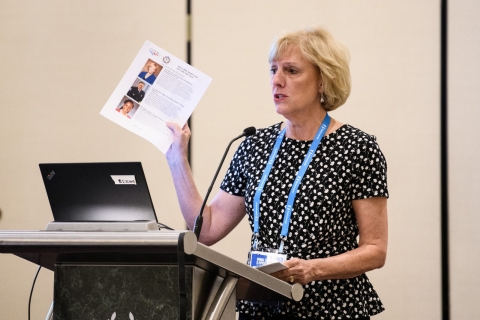County officials tackle fixing loss of federal health benefits in jail

Key Takeaways
A task force made up of members of NACo and the National Sheriffs’ Association met Sunday to begin tackling a problem that sees people lose federal health benefits when they enter county jail.
Across the United States, county jails house the mentally ill and those with substance use disorders. When someone is arrested and is unable to make bail, they lose their federal healthcare benefits. Those people are often stuck in a revolving door, landing in jail after their health care is disrupted after losing their federal health benefits.
Learn More
“Federal Policy Impacts on County Jail Inmate Healthcare & Recidivism”
People can lose not only Medicaid benefits but also Medicare, Social Security, Children’s Health Insurance Program benefits and even veteran’s benefits, said NACo Executive Director Matt Chase in a town hall held Sunday at NACo’s Annual Conference.
“This issue is simply about federal policy makers not understanding the difference between prison and jail,” Chase said. “When you look at case law, the only individuals who are guaranteed healthcare are inmates; they are guaranteed a right to healthcare services because they’ve lost the ability to procure it on their own. What that court case doesn’t say is actually who pays for it.”
“We have a problem where you lose your benefits at arrest and not at conviction,” he said. “There’s also a double standard, if you are arrested and you post bail, you retain your federal benefits, but if you’re housed in the county jail, you lose them.”
Task force co-chair Arapahoe County, Colo. Commissioner Nancy Sharpe said the group plans to raise awareness about the Medicaid Inmate Exclusion Policy with federal, state and local officials as well as the public.
“Most people do not know we have this kind of an issue,” she said. “We’re looking to amend the policy that would help contribute to better health justice and public safety outcomes for these individuals as well as our communities.”
The topic is “near and dear to me,” said audience member Caddo Parish, La. Commissioner Steve Jackson. “I talk about it all the time. We’re wasting tax-payers’ money. The $350 we spend just to hold them is wasted. We’re spending $5.5 million on healthcare on pretrial detainees.”
Panelist Washtenaw County, Mich. Sheriff Jerry Clayton also spoke to NACo members at the town hall. “I was excited [about the task force] for a variety of reasons,” he said, noting that while his county is “fairly well off…how do we support a population with mental, behavioral and physical health problems?”
The possibility of recidivism stands at 58 percent for those with mental health problems, he noted.
Fellow panelist Jim Martin, vice president of project development at the National Commission on Correctional Healthcare, noted that detaining the mentally ill costs three times that of the average inmate.
The task force plans another in-person meeting in October. Chase noted that the group welcomes input from all.

Attachments
Related News

California counties fight agricultural crime
Sheriffs' offices and prosecutors in California's central valley make specific efforts to prevent and prosecute crimes against the agricultural community.

After historic winter storms, counties assess response
Counties in states that rarely receive much winter weather are assessing their responses to the January storm that left many covered in snow and ice.

House Agriculture Committee introduces 2026 Farm Bill
On February 13, House Agriculture Committee Chairman G.T. Thompson (R-Pa.-15) introduced the House version of the 2026 Farm Bill, the Farm, Food, and National Security Act of 2026.
